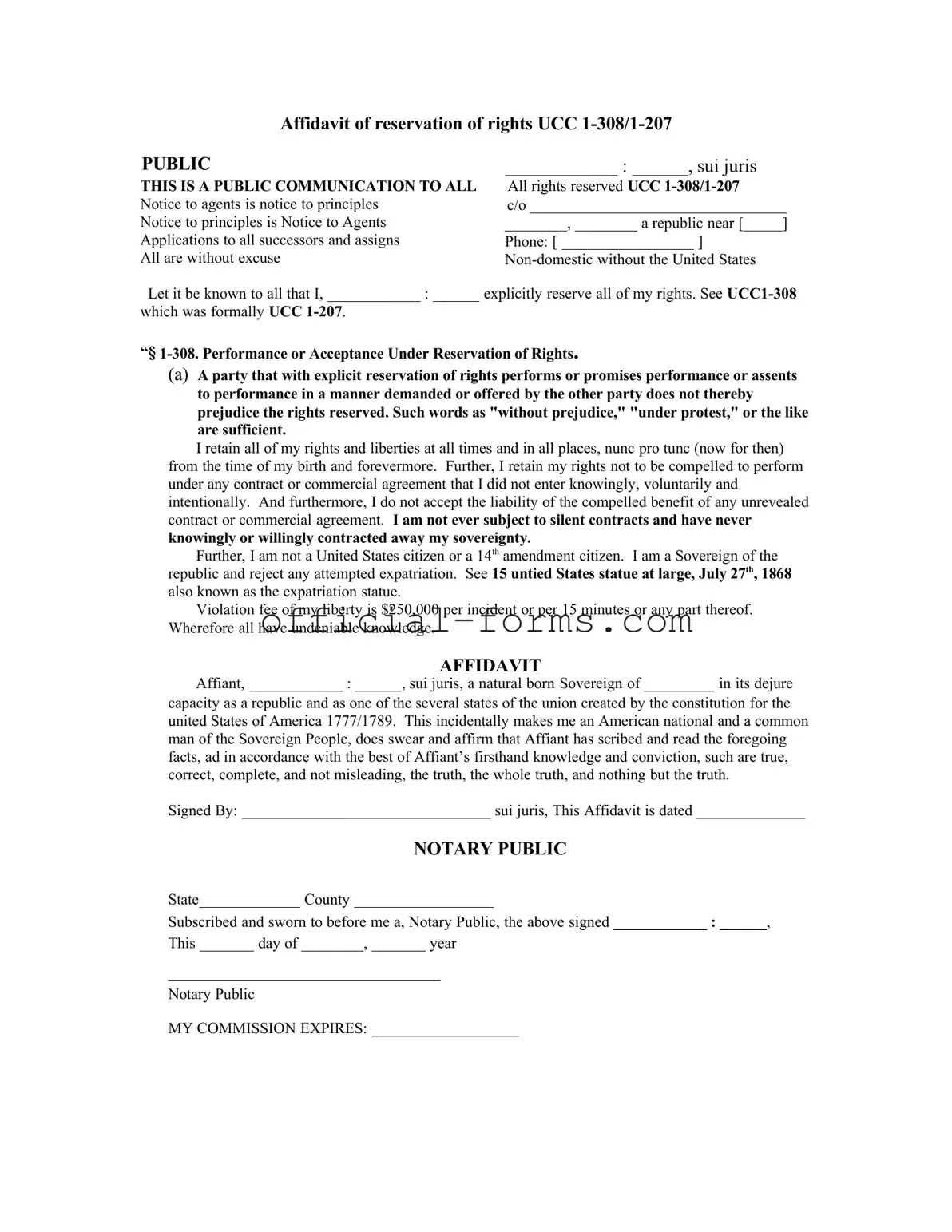Blank Ucc 1 308 Form
The UCC 1-308 form, also known as the Affidavit of Reservation of Rights, is a public document that allows individuals to formally reserve their rights under the Uniform Commercial Code. This form emphasizes that a party can perform or accept performance while explicitly retaining their rights, ensuring they are not prejudiced by any agreements. By using this form, individuals assert their sovereignty and clarify their legal status.
Open My Ucc 1 308 Now

Blank Ucc 1 308 Form
Open My Ucc 1 308 Now
Don’t leave your form incomplete
Finish Ucc 1 308 online quickly from start to download.
Open My Ucc 1 308 Now
or
➤ PDF
